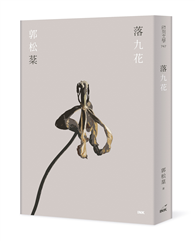This volume explores the evolving and complex memorial consequences of state-sponsored violence in post-dictatorial Argentina. Specifically, it looks at the power and significance of personal emotions and affects in shaping memorial culture. This volume contends that we need to look beyond political and ideological contestations to a deeper level of how memorial cultures are formed and sustained. It argues that we cannot account for the politics of memory in modern-day Argentina without acknowledging and exploring the role played by individual emotions and affects in generating and shaping collective emotions and affects. Drawing from direct testimony from Argentinian women who have experienced political and physical violence, the research in this volume aims at understanding how their memories may be a different source of insight into the deep animosities within and between Argentine memorial cultures.
In direct contrast to the nominally objective and universalist sensibility that traditionally has driven transitional justice endeavours, this volume examines how affective memories of trauma are a potentially disruptive power within the reconciliation paradigm--and thus affect should be taken into account when considering transitional justice. Accordingly, Cultures of Remembrance for Women in Post-Dictatorial Argentina is an excellent resource for those interested in human rights, transitional justice, clinical psychology and social work, and Latin American conflicts.











